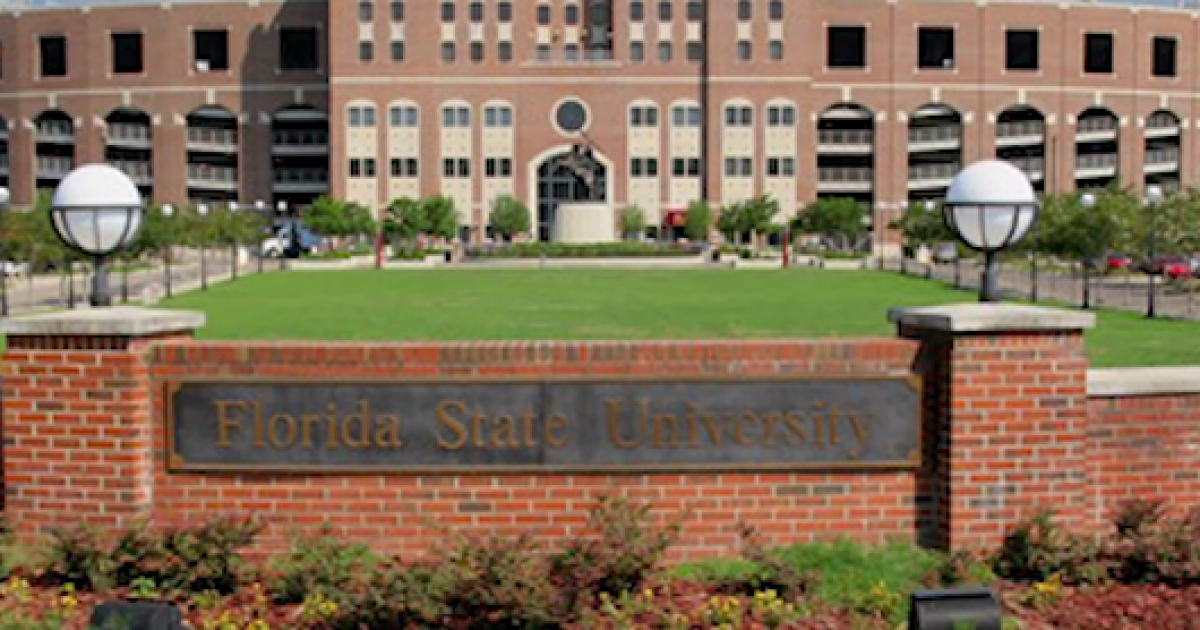
Florida State University recently joined the University of Florida and University of North Florida in receiving a free speech group’s highest rating for policies that respect free speech.
According to The College Fix, FSU got rid of policies that “clearly and substantially” restricted free speech or are very “ambiguous” that they too easily” encourage “administrative abuse and arbitrary application.”
The Foundation for Individual Rights in Education gave FSU the “green light” rating on April 9, praising the taxpayer-funded university for finally respecting the First Amendment.
UF and UNF received green-light ratings a few years ago.
FSU changed the five policies during the last year “to better reflect the university’s commitment to open discussion, academic freedom and respect for differing opinions,” Amy Hecht, the university’s vice president for student affairs, stated in FIRE’s press release.
The release didn’t mention the specifics of each prior policy. However, it did note these police include “a directive on bias response” and an email policy that prohibits “subjectively ‘irrelevant’ or ‘inappropriate’ emails.”
A FIRE spokesperson told The College Fix that it was alluding to ”four policies archived in July and another cached by Google late Wednesday.”
These policies include:
A sex discrimination policy that bans “derogatory or offensive language” – even nonsexual – toward a person based on gender
A nondiscrimination policy that says “offensive, demeaning, or degrading” behavior to persons or will not be tolerated
A “Discrimination Response System” that investigates acts of “bias,” intentional or not, defined as a “pre-formed negative opinion or attitude toward facets of another person(s)’ identity”
A harassment policy that botches the Supreme Court’s three-part Davis test by judging conduct that is “severe, pervasive, or persistent” as harassment (emphasis added)
An email policy that identifies spam as “[i]rrelevant, inappropriate or unsolicited emails that are not directly related to the recipients, an employee’s responsibilities, student academic and university experience or other legitimate university-related purpose”
The College Fix noted that the new modifications “correctly apply the Supreme Court’s Davis test, specify that only ‘true threats’ and preexisting violations of university policy and the law can be investigated and punished, dramatically raise the bar for what’s considered spam, and limit harassment to conduct that ‘places a person in reasonable fear of harm to their person or damage to their property,’ among other specific criteria.”
FSU had already implemented the University of Chicago’s principles on free speech, at the request of Florida Governor Ron DeSantis in the spring of 2019.
“Florida State’s active efforts to earn this designation mean it takes its commitments to free expression seriously,” stated Mary Zoeller, FIRE policy reform senior program officer. “Unlike most institutions in Florida and around the country, Florida State’s policies do not restrict constitutionally protected speech.”
This is good news for those who believe in free speech on university campuses.
These institutions are where most people’s political beliefs are molded.
Most certainly, people will encounter leftist propaganda at universities, so they must be allowed to express themselves to counter the narrative.
Small victories like the policy changes at Florida State University show the validity of working at the state level to change public policy.



